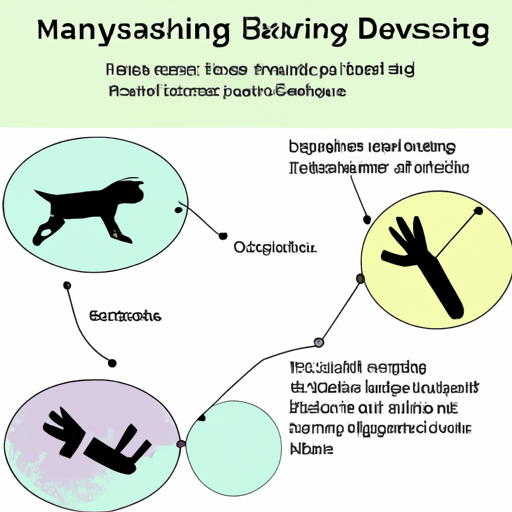Understanding Your Dog’s Behavior
You’ve probably noticed it – the gentle nibbles, the playful chomps, the mock attacks. It’s all part of your dog’s play routine. But why do dogs bite when they play? Understanding your dog’s behavior can help you better interact with your furry friend and create a safe, playful environment for them.
Dogs play-bite for a variety of reasons, and it’s typically a harmless form of communication. They’re not trying to hurt you, they’re simply engaging in a playful behavior that’s normal for them.
The Role of Bite Inhibition
One of the key reasons why dogs bite when they play is due to a concept known as ‘bite inhibition’. Early in life, puppies learn to control the force of their bites from their littermates and mother. If a puppy bites too hard during play, the other dog will typically yelp and cease playing, signaling to the offending pupper that they’ve crossed a line.
- Puppyhood Lessons: Bite inhibition is learned during puppyhood.
- Feedback Mechanism: Yelps and cessation of play serve as feedback.
- Boundary Setting: This helps puppies understand the limits of play.
Dog’s Play Language
Another reason for play biting is that it’s part of the dog’s play language. Dogs have a variety of play signals they use with each other and with humans. These include bowing, bouncing, barking, and, yes, play biting.
- Bowing: This is a clear invitation to play.
- Bouncing: Dogs often bounce around when they’re excited and ready for play.
- Barking: Some dogs bark to signal that they’re in a playful mood.
- Play Biting: Play biting is another way dogs engage in play.
When Play Biting becomes a Problem
Play biting becomes a problem when your dog doesn’t understand bite inhibition or if they bite too hard. In these cases, it’s crucial to intervene and correct the behavior.
| Problem | Solution |
|---|---|
| Lack of Bite Inhibition | Teach your dog bite inhibition through feedback |
| Biting Too Hard | Use toys or play methods that don’t involve your hands |
How to Discourage Play Biting
There are several methods you can use to discourage play biting:
- Redirect the Bite: When your dog tries to bite you, redirect them to a toy instead.
- Use Verbal Cues: A high-pitched “ouch” can signal to your dog that they’ve bitten too hard.
- End Playtime: If your dog continues to bite hard, end playtime to teach them that biting leads to the end of fun.
FAQ
Q: Why does my dog bite me when we play?
A: Dogs often bite as a form of play. It’s their way of engaging in a playful behavior that’s normal for them.
Q: How can I stop my dog from biting when playing?
A: You can discourage play biting by redirecting your dog to a toy, using verbal cues, or ending playtime if they continue to bite hard.
Q: Is play biting a sign of aggression?
A: Not usually. Play biting is typically a harmless form of communication. However, if your dog is biting too hard or showing other signs of aggression, it’s a good idea to consult with a professional dog trainer or behaviorist.



